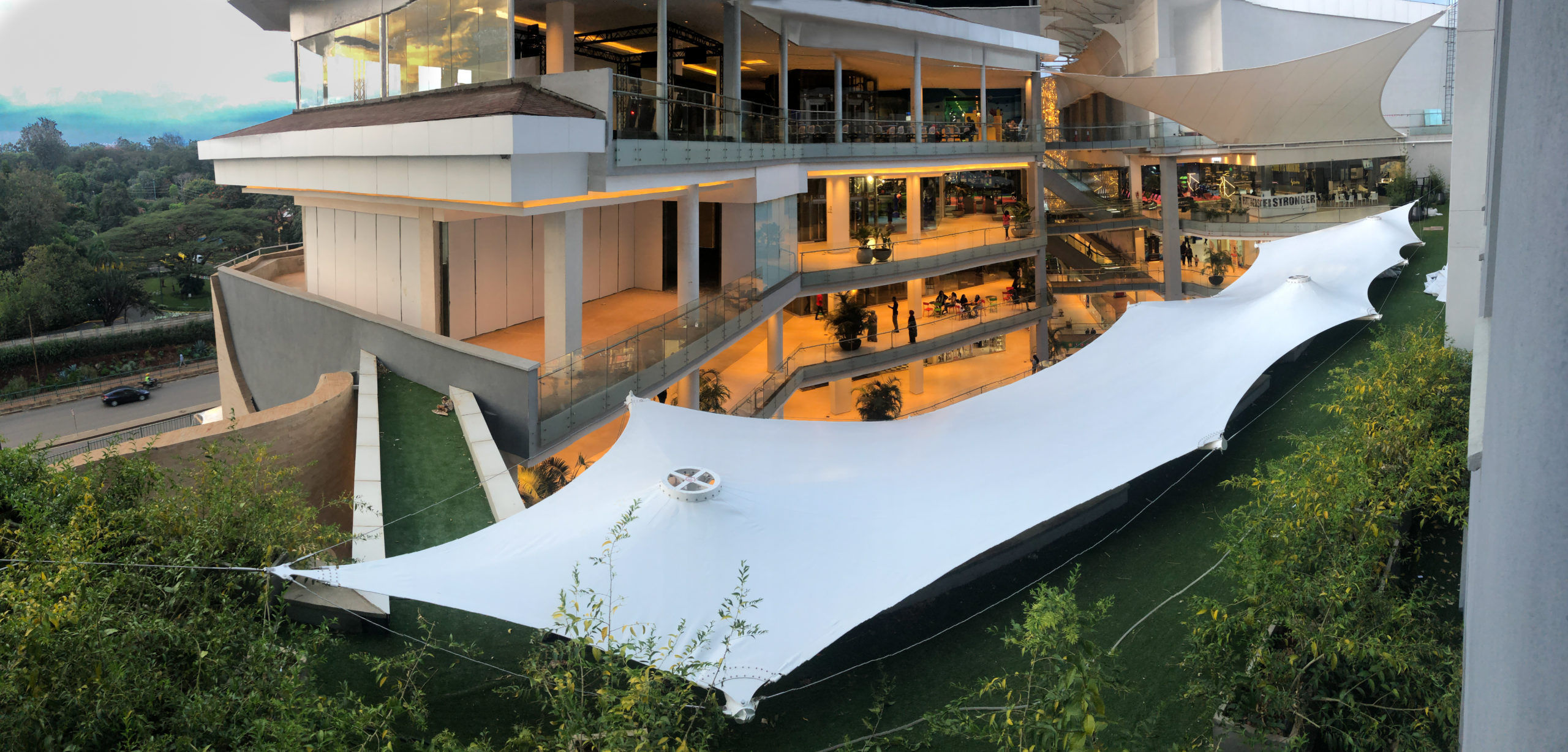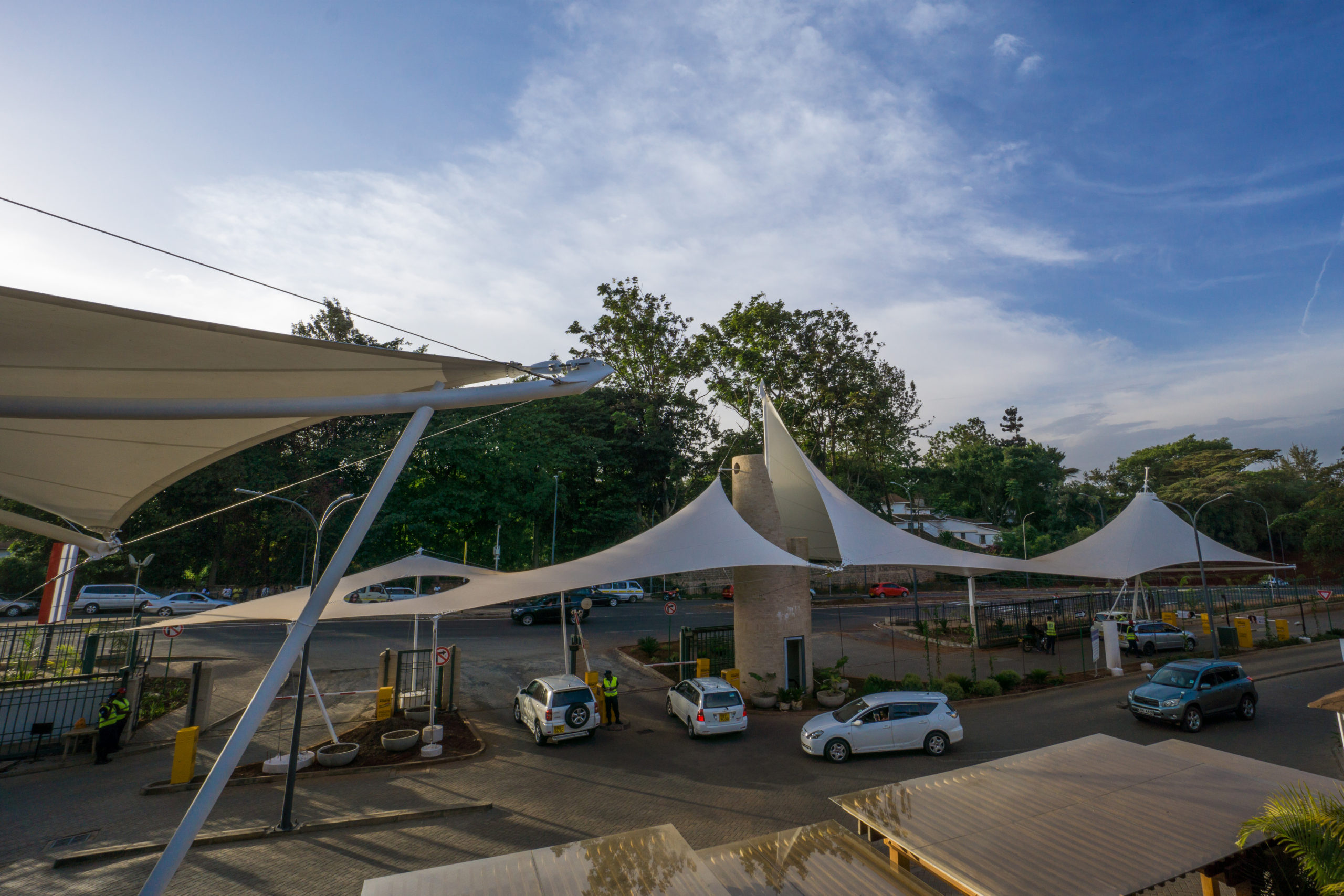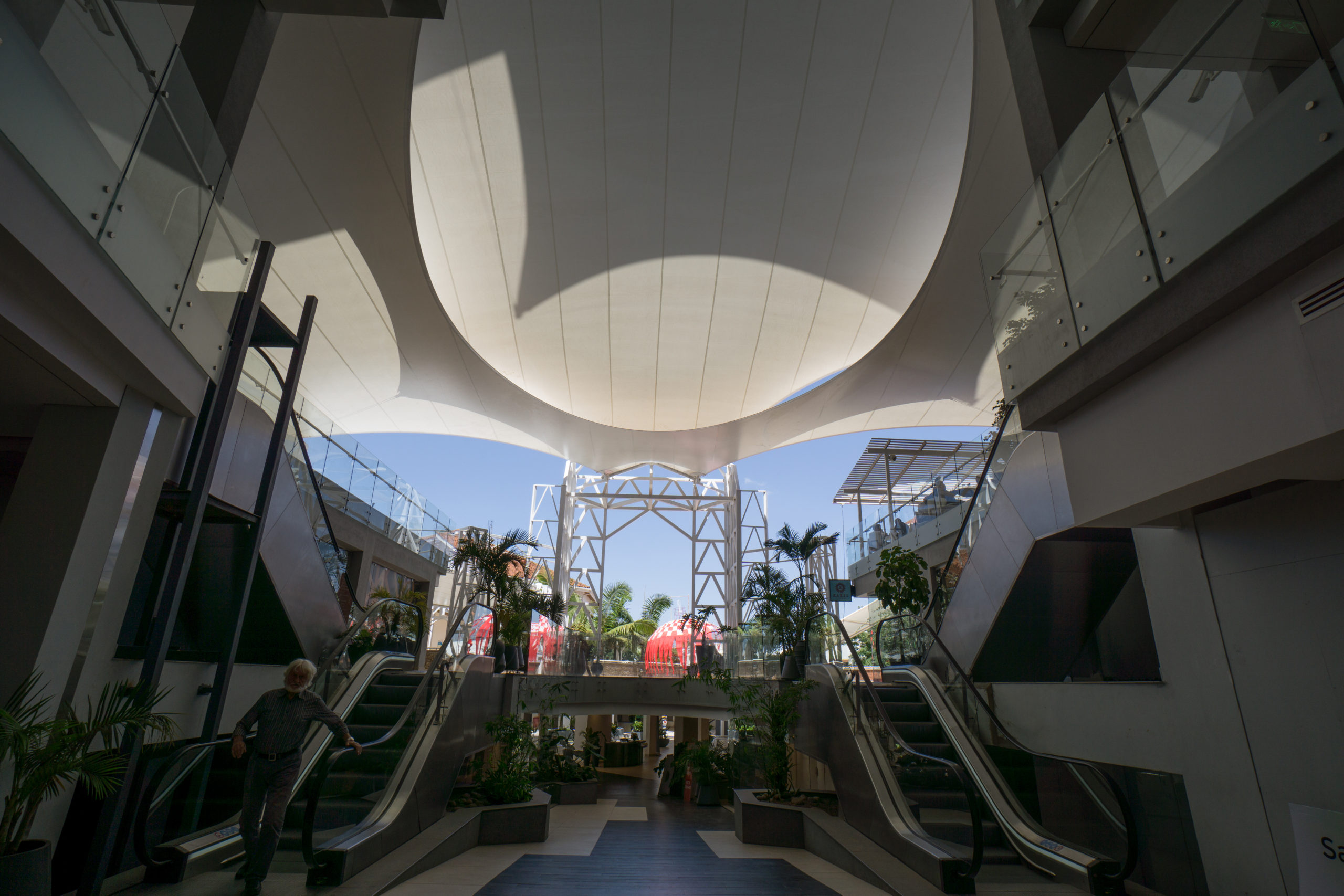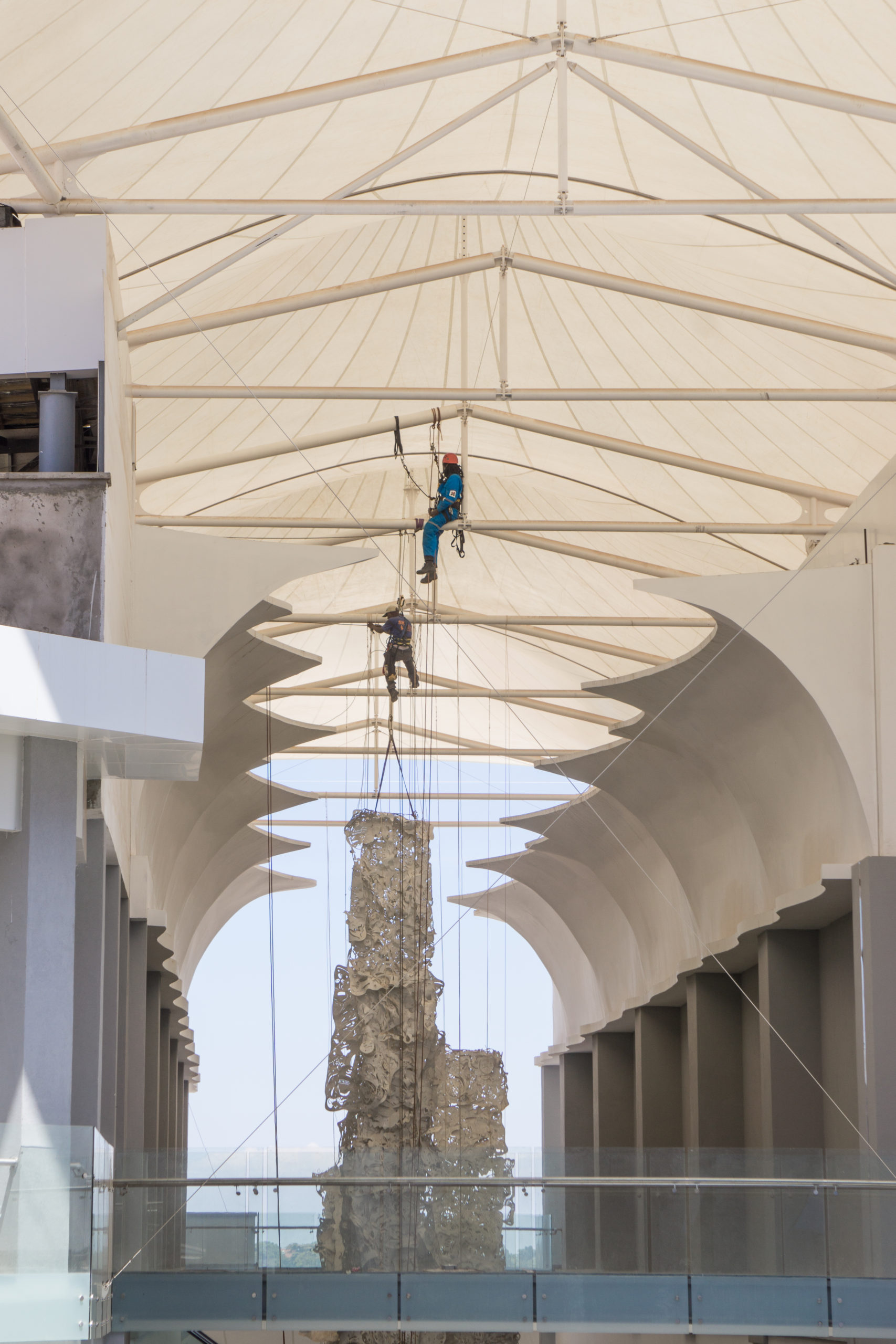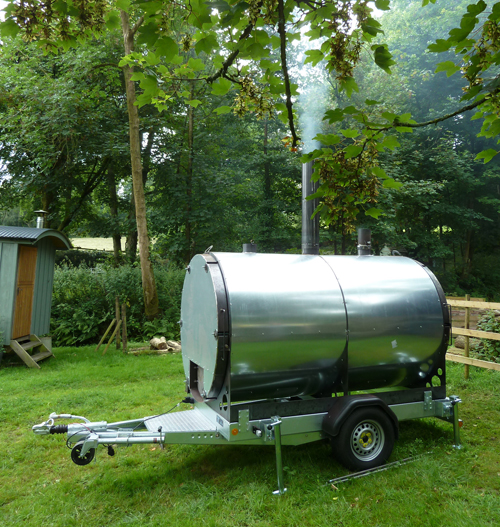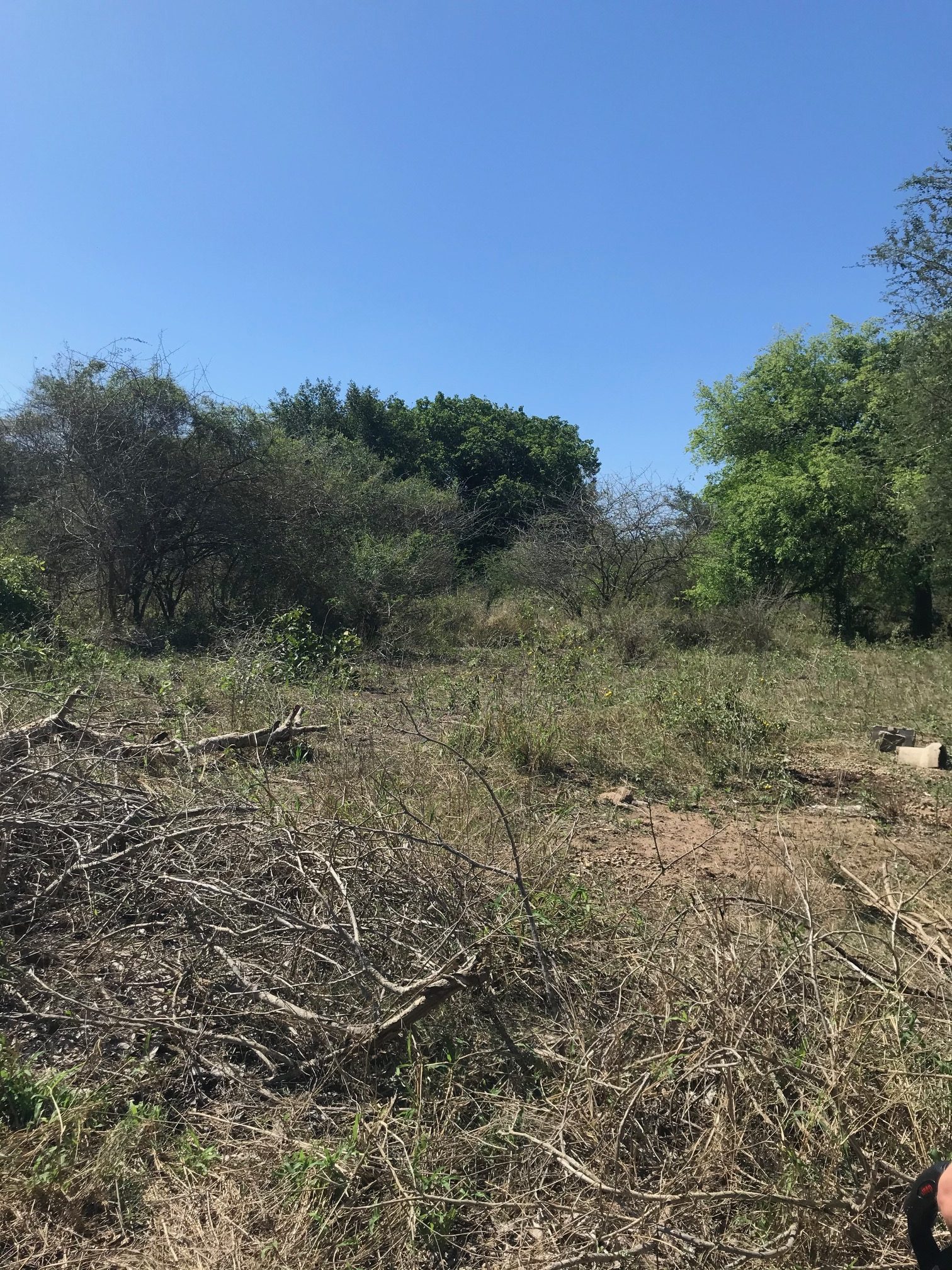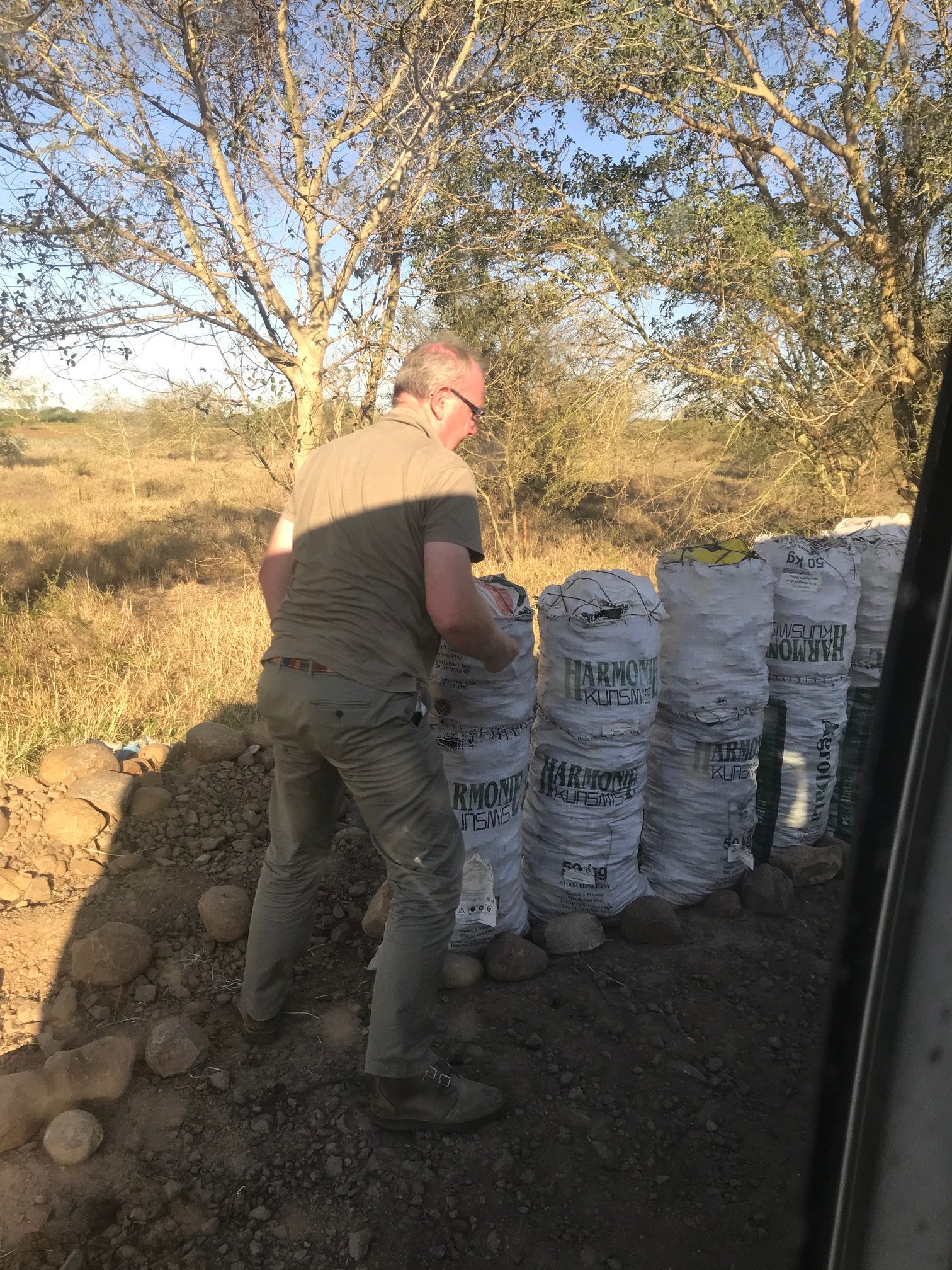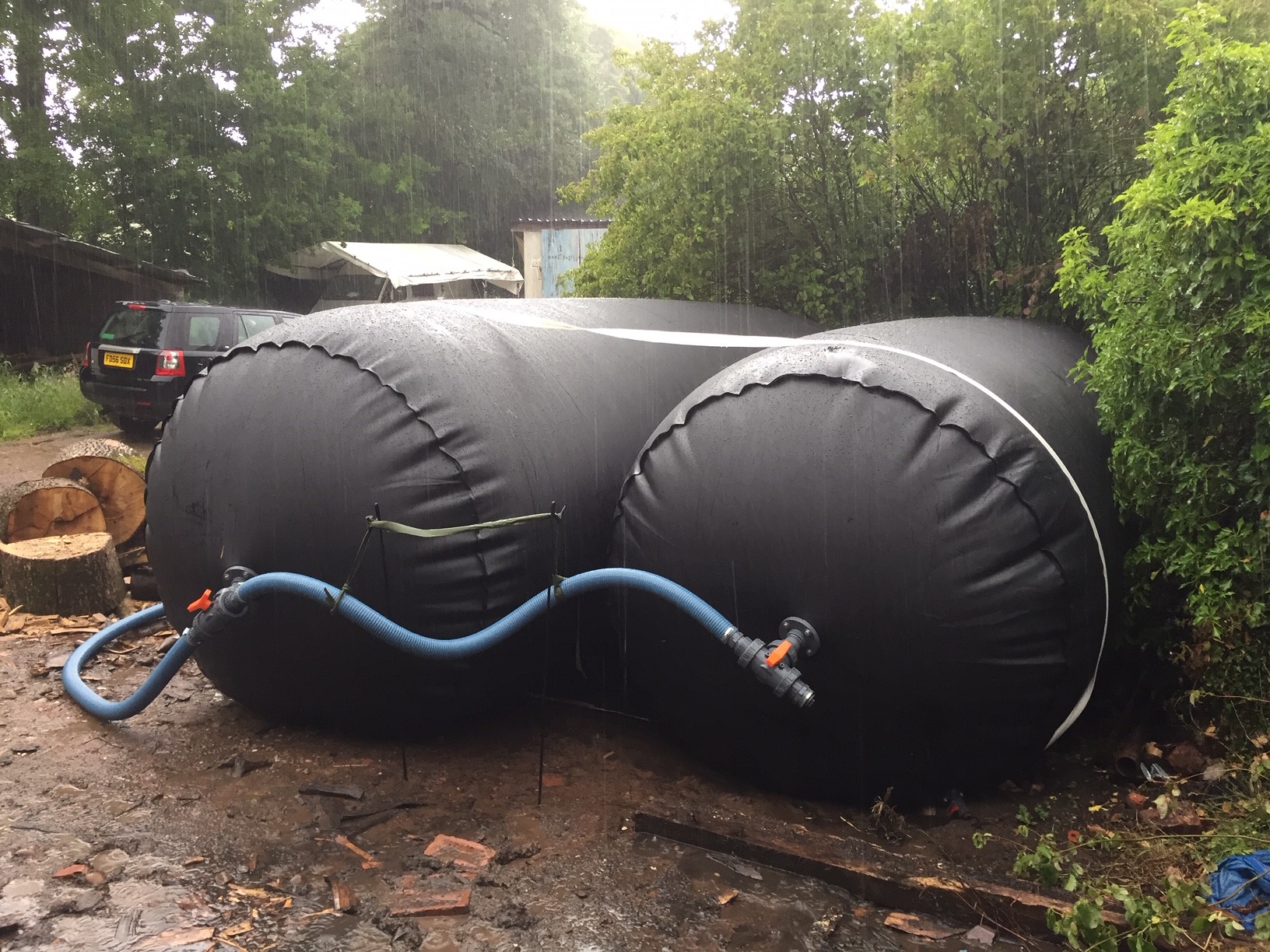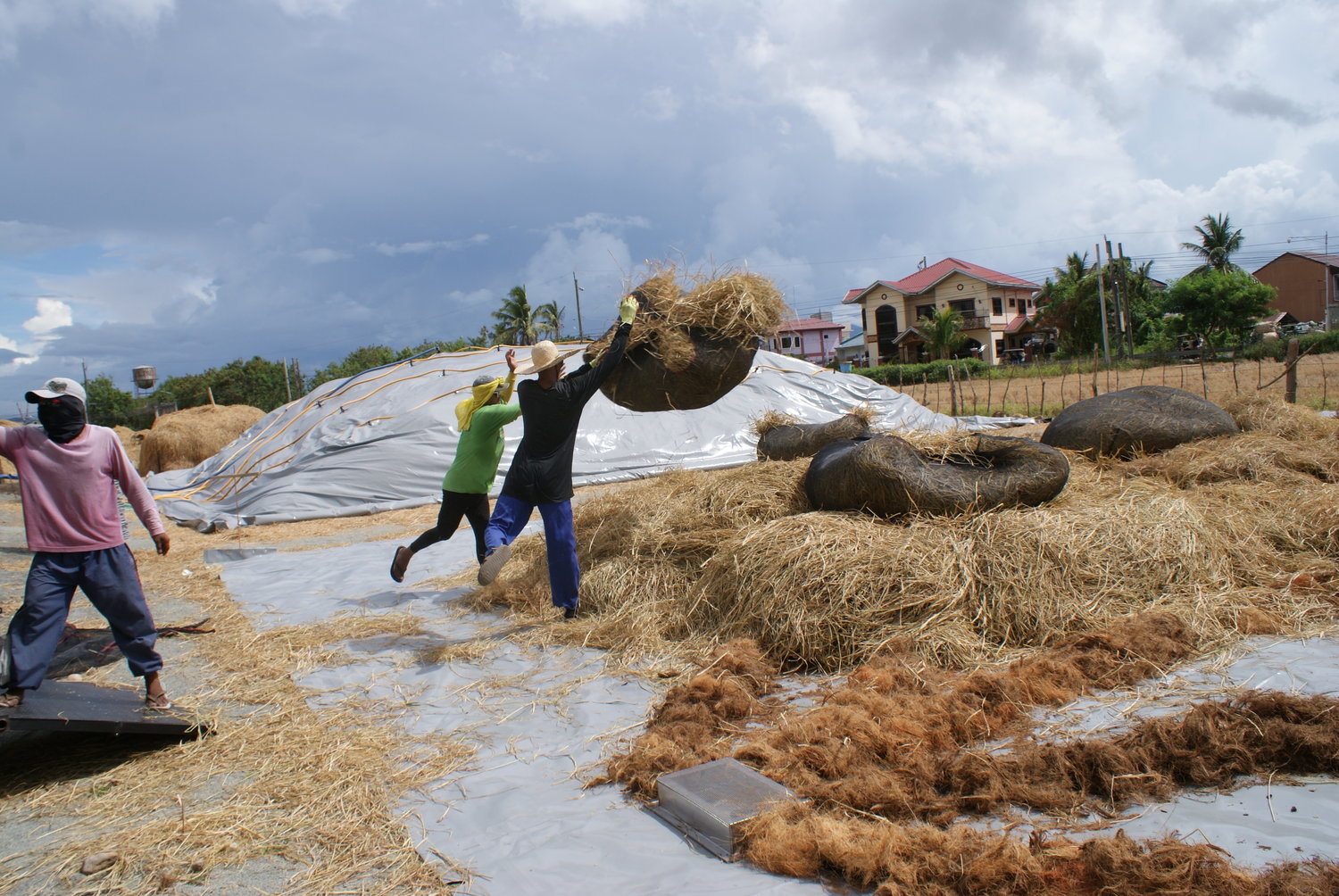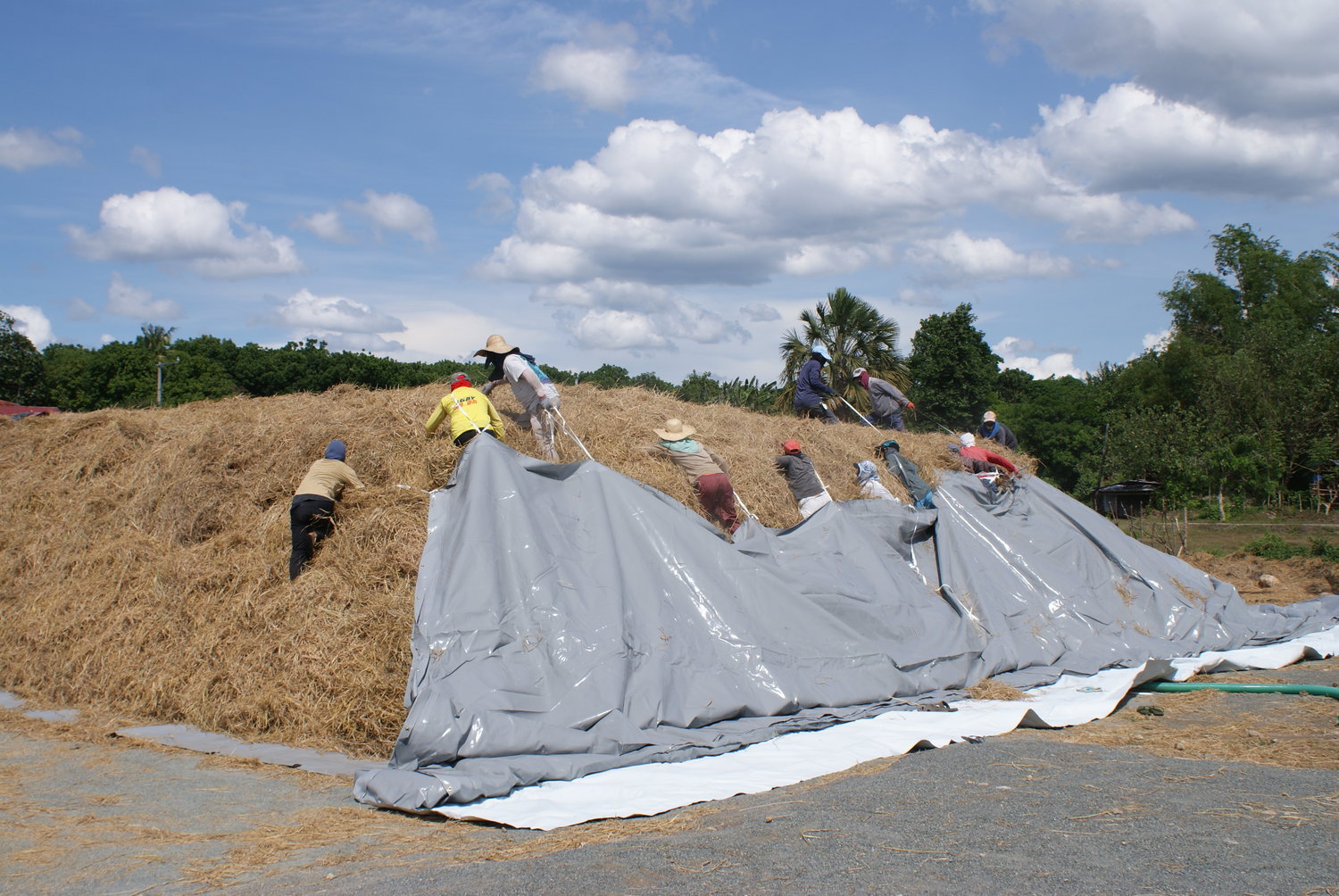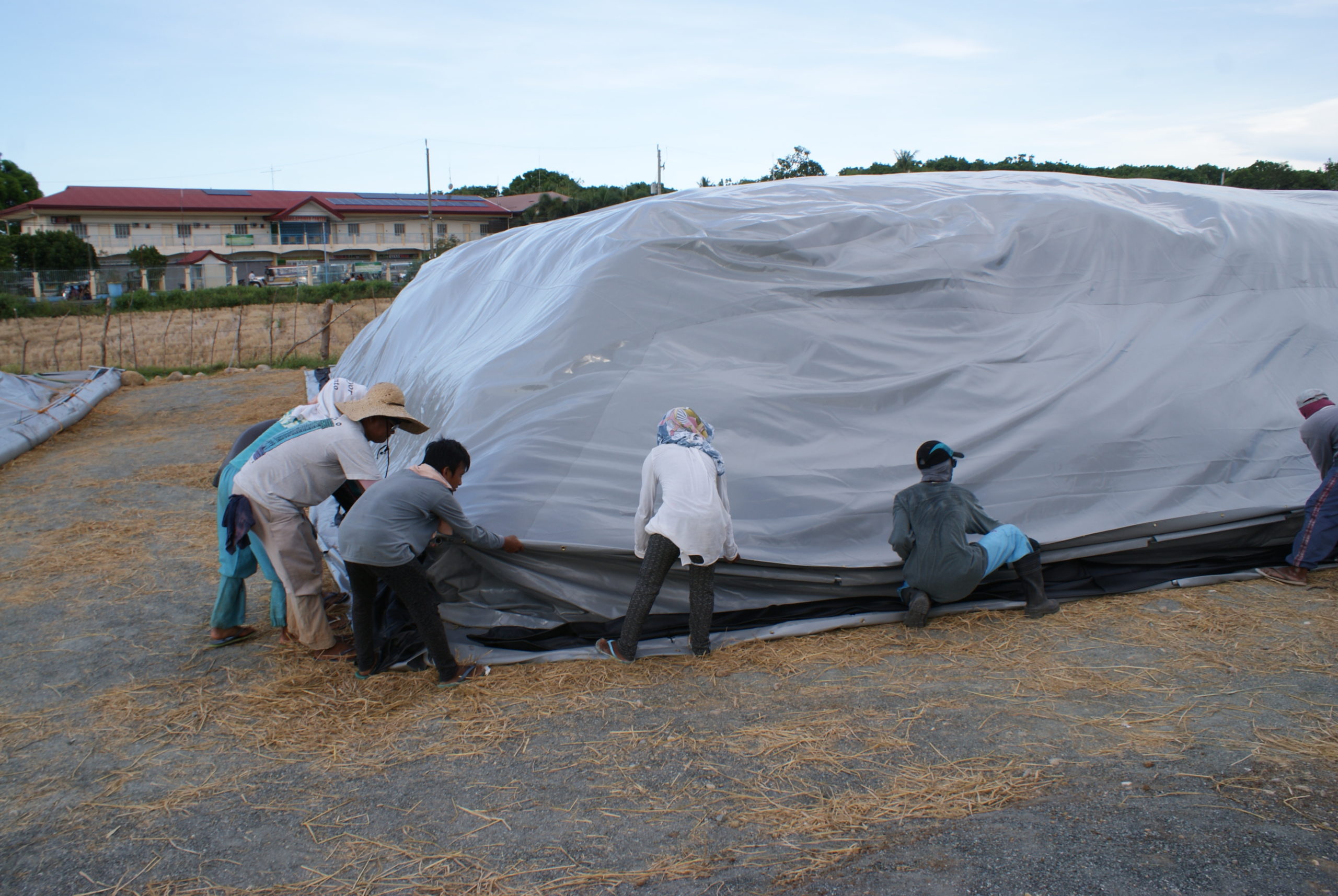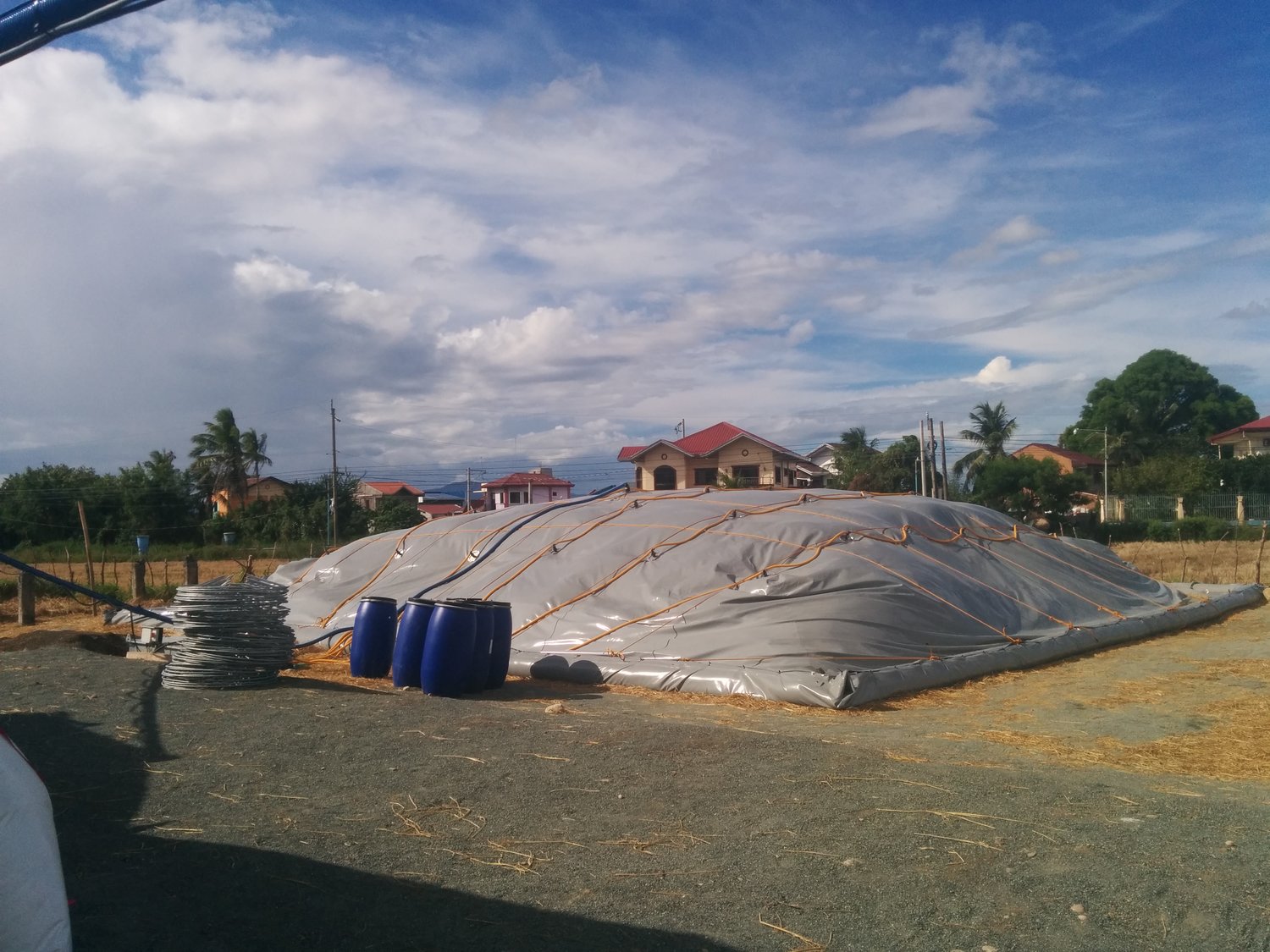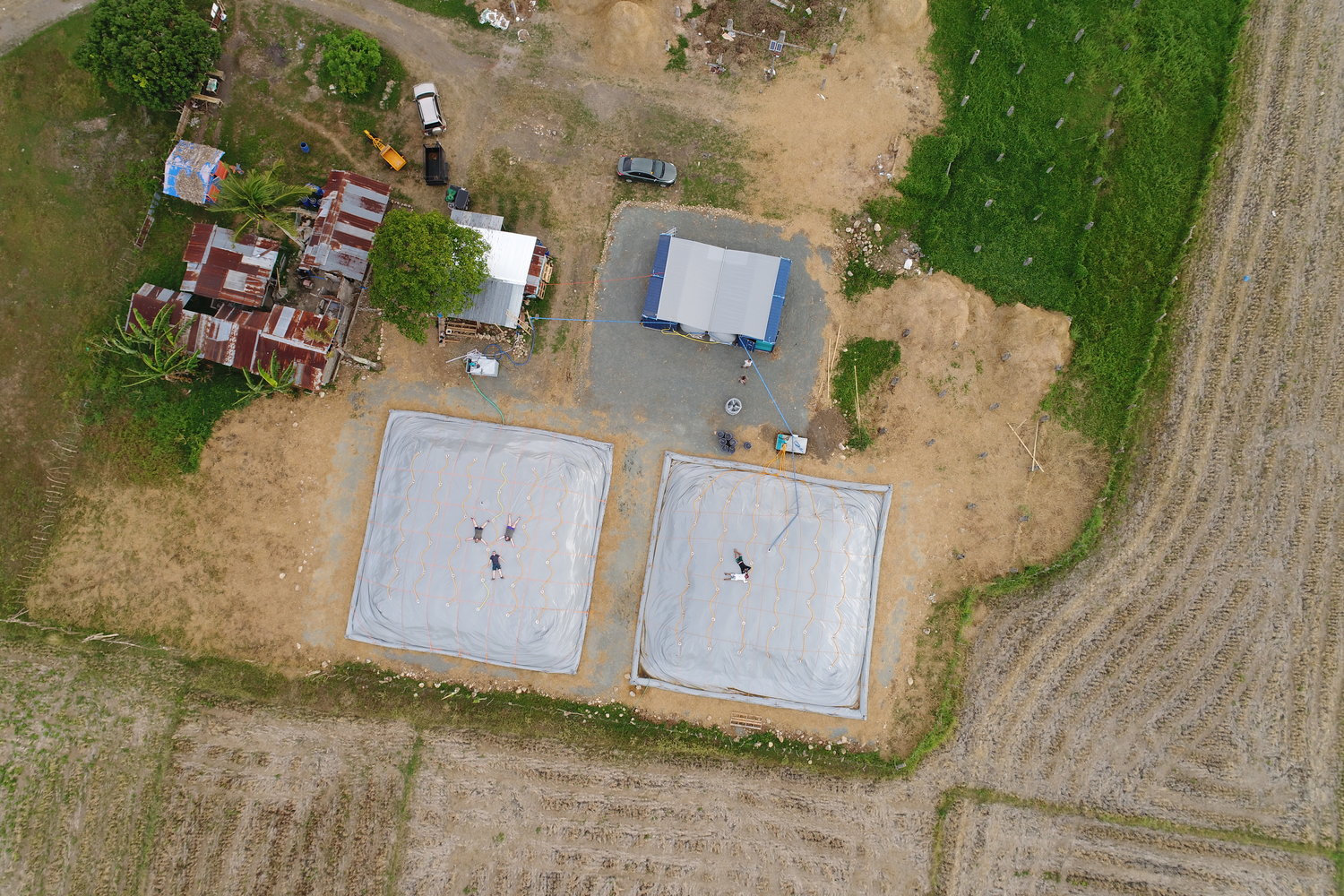Nairobi
In 2016 OMS were approached by South African structural engineer Evan Price on behalf of a national development company, to produce a range of bespoke tensile fabric canopies for the Village Market shopping and lifestyle complex being built in the heart of Nairobi, Kenya.
The customer free issued non-weldable Serge Ferrari Precontraint TX30 PVC fabric, Evan provided the cutting patterns and detail design. Our job was to cut the fabric, prepare seam and boundary weld areas using our bespoke Serge Ferrari fabric grinder and then manufacture the canopies.
Over a 3year period OMS produced a total of 27no. tensile fabric canopies with a combined surface area of 5250m2 plus 1No. 10m x 12m hypar screen from Serge Ferrari Soltis mesh.
The largest canopy is the multi conic Mall roof comprised of 4No. cones with a total surface area of 950m2.
---------------------------------------------------------------------------------------------------------------------------------------------------------------------------
AFRICHAR
Is an Innovate UK sponsored project studying the use of a retort vessels to create charcoal which also produces methane gas as a by-product. The gas is harvested, stored and used for cooking, heating/drying and electricity generation, providing potentially life-changing benefits for local communities.
In addition to the gas which is produced, the charcoal production process generates heat which can be used to pasteurise water for drinking, as well as for crop drying.
The charcoal is a non-perishable, saleable product, which can be used for cooking and soil improvement and can be produced from dry biomass waste from crops or from managed woodland. It is also an efficient form of carbon capture
---------------------------------------------------------------------------------------------------------------------------------------------------------------------------
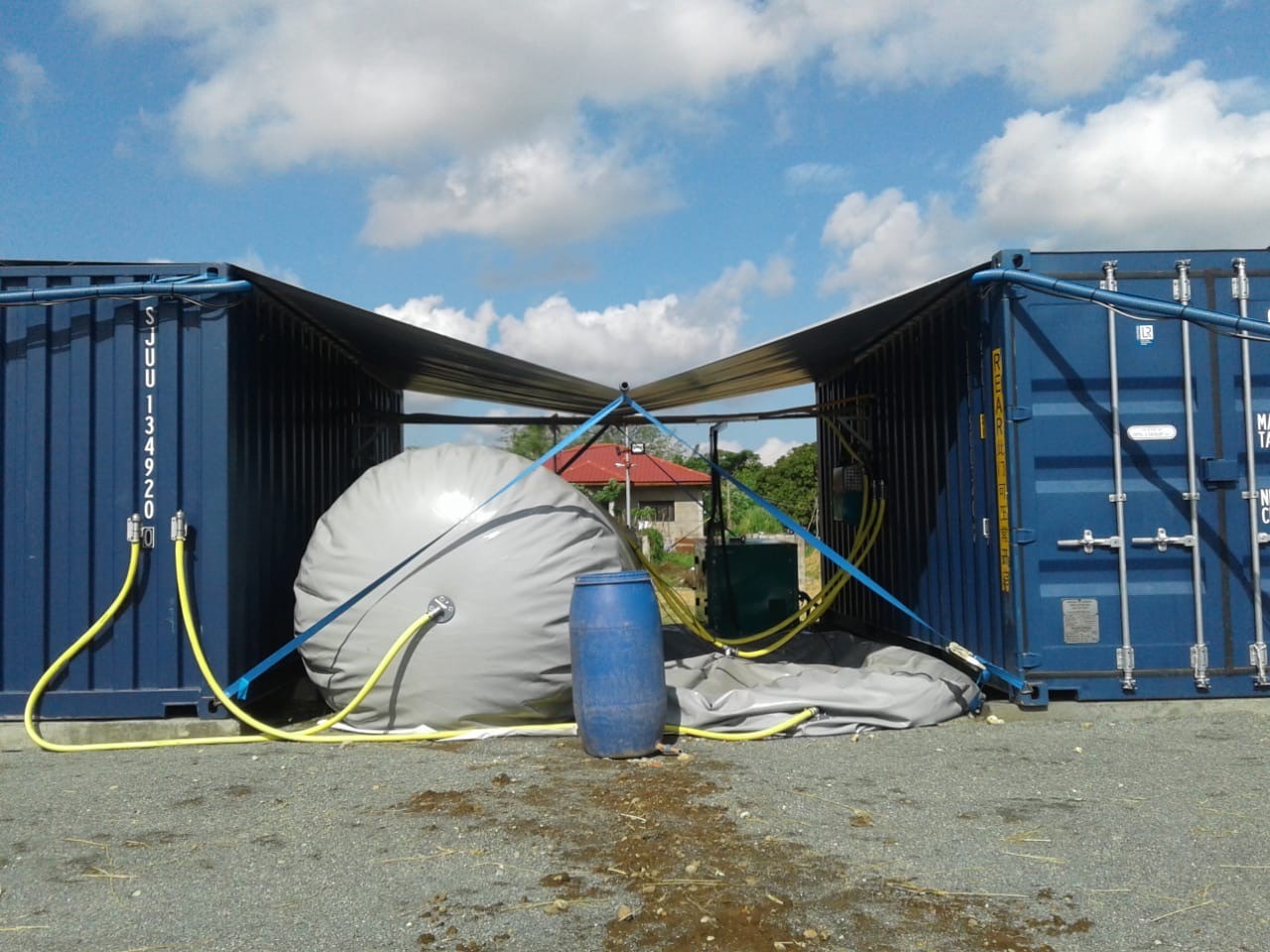
dryQube Philippines
Our client QUBE Renewables are currently working on a three year Innovate UK dry digestion project in collaboration with Straw Innovations Ltd, the University of Manchester and the University of Southampton focusing on the digestion of rice straw in the Philippines.
This innovative dryQUBE project has been designed as a trial to generate energy on site in the form of cooking fuel, electricity, and upgraded biomethane, as well as tackling the issue of unsustainable rice straw disposal - the majority of waste straw is currently burnt, causing widespread environmental and human damage.
OMS were engaged to design and manufacture the PVC sheeting for the 2No. digesters, then also the pressurised gas storage cylinder and waterproof cover

